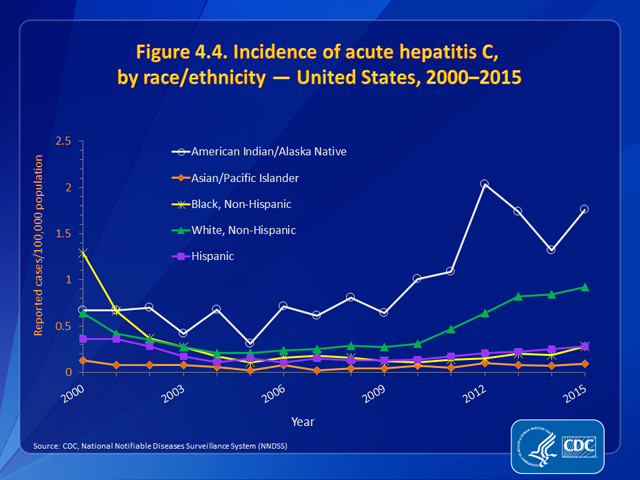 World Hepatitis Day on July 28th “brings the world together under a single theme to raise awareness of the global burden of viral hepatitis and to influence real change.” (1) Viral hepatitis is a leading cause of death globally and is attributed to 1.34 million deaths per year, more deaths each year than all other reportable infectious diseases combined. (1,2) Unfortunately, there are a significant number of people living unknowingly with some form of hepatitis. Not only does this mean that they are not receiving the treatment they need, but they are also unaware they could be transmitting the infection to others.
World Hepatitis Day on July 28th “brings the world together under a single theme to raise awareness of the global burden of viral hepatitis and to influence real change.” (1) Viral hepatitis is a leading cause of death globally and is attributed to 1.34 million deaths per year, more deaths each year than all other reportable infectious diseases combined. (1,2) Unfortunately, there are a significant number of people living unknowingly with some form of hepatitis. Not only does this mean that they are not receiving the treatment they need, but they are also unaware they could be transmitting the infection to others.
A form of viral hepatitis, hepatitis C (HCV), is of significant concern to the American Indian and Alaska Native (AI/AN) population, as they have the highest rate of new infections of all ethnic groups. HCV is transmitted through blood contact, the blood of an infected person entering the body of an unaffected person, often through sharing needles or syringes. Although there is a way to treat HCV, it is still the leading cause of liver cancer and liver transplants. (2)
Baby boomers should also be concerned about HCV. As the Indian Health Services (IHS) website states, “Many people, especially people born between 1945 and 1965 may have been exposed to HCV through blood transfusions and non-sterile injections. The Centers for Disease Control and Prevention (CDC) recommends that these ‘baby boomers’ be tested at least once for HCV.” (2)
Organizations like the CDC, the Alaska Native Tribal Health Consortium, and the World Hepatitis Alliance are trying to raise awareness in hopes to achieve a world free from viral hepatitis. To begin on the path to achieving this goal, people need to not only be educated about the diseases and its symptoms, but also get tested and/or vaccinated for viral hepatitis. To see if you need to be tested and/or vaccinated contact IHS, your local provider, or visit www.cdc.gov/hepatitis/riskassessment/index.htm. To find testing and vaccine locations near you visit gettested.cdc.gov.
Sources
- World Hepatitis Alliance. (n.d.). About World Hepatitis Day. Retrieved July 20, 2017, from http://www.worldhepatitisday.org/en/about-us
- Haverkate, R., & Reilley, B. (2017, May 19). Hepatitis C Virus in Indian Country. Retrieved July 20, 2017, from https://www.ihs.gov/newsroom/index.cfm/ihs-blog/may2017/hepatitis-c-virus-in-indian-country/
Leave a Reply